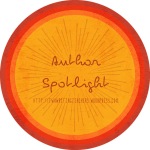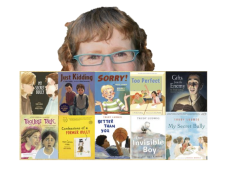As the published author of nine children’s books, I have a confession to make: When I present at schools and conferences, I rarely give talks on the craft of writing. Over 95 percent of my presentations focus on friendship / bullying issues and how to promote kinder, more inclusive school communities. While I’m being totally honest here, I must also confess that I don’t think I have any particularly noteworthy “how to” writing tips that you haven’t heard or read before. What I can do is share with you my general thoughts on the Good, the Bad, and the Ugly when it comes to the writing process itself.
Allow me creative license to work backwards by dealing with the Ugly first. That’s right—I’m talking about the big ole elephant in the room: Writer’s Block.
“Writing is easy. All you do is sit staring at a blank sheet
of paper until drops of blood form on your forehead.”
– Gene Fowler
I’ll never forget the advice renowned author Richard Peck gave to students and teachers at a speaking engagement I attended years ago: “Your story is only as good as your first sentence, so make sure it’s a great one.”
Sheesh! Talk about pressure! That advice, while powerful and true, has caused many a writer (including me) to stare anxiously at a blank page as the clock tick-tocks away. Hear that knock, knock, knock on your door? Hello, it’s Writer’s Block’s BFF, Procrastination.
Where did I put those yummy toasted almonds? Oh, look–chocolate!
Hmm…I wonder how many people ![]() my recent Facebook post…
my recent Facebook post…
Ping! Incoming emails! I’d better check them out.
![]() I’m soooo #bored. Need #inspiration!
I’m soooo #bored. Need #inspiration!
![]() Aww….who’s a good girl?! You are! Yes, YOU are!!
Aww….who’s a good girl?! You are! Yes, YOU are!!
It wasn’t until I was trying to help out a fellow author that I had an “aha” moment, allowing me to approach Peck’s sage advice from a different angle:
“I’m stuck on how to begin the book,” my friend shared with me. “I can’t seem to write that first crucial sentence.”
“So don’t start with the first sentence,” I told him. “Write the second one and go from there. Maybe your first sentence is waiting for the other sentences to be written.”
“Wow!” he exclaimed. “I never thought it of that way before!” Well, frankly, neither did I until I said it!
Another author recently shared with me her wonderful epiphany: If you’re experiencing writer’s block—it’s not you that’s blocked; it’s the direction you’re going with your writing. Simply rewind and try a new direction.
All Writers Have Bad Days
Yes, indeed, we do. Often, those bad days are not of our own choosing. Our hearts are in the right place, but our brains refuse to cooperate. We find ourselves using the <del> key more often than the <CTRL + S> command.
Don’t focus on writing The Perfect essay, article, story, or blog post. Just write. Then step away from your draft. Go for a walk. Take a hike. Meet with friends. That break away from your work will refresh your mind and allow you to see your text in a whole new light and make edits accordingly. It takes several rounds of edits to make the chorus of words, sentences, and paragraphs sing harmoniously on a page.
Another way we writers can have bad days is when we allow ourselves to be our own worst enemy by constantly comparing ourselves to others. Please stop. Here’s why:
Instead of comparing how well your writing stacks up against your peers’ works, focus on how your writing compares with your previous works. You achieve success as a writer when you improve your personal best every time you write.
Who Doesn’t Like a Good Ending?
If you were to ask 30 writers what is the best way to write, chances are you’ll get 30 different answers. Every writer’s path is as different and unique as the story, article, essay, blog post, etc., he/she writes. And that’s good news because it allows each of us to find the technique, style, and voice to effectively express what we need to share with our readers. So keep on writing…and improving your personal best!
 Trudy Ludwig is an award-winning author who specializes in writing children’s books that explore the colorful and sometimes confusing world of children’s social interactions. She has received rave reviews nationwide from educators, experts, organizations, and parents for her passion and compassion in addressing relational aggression – the use of relationships to manipulate and hurt others. Trudy wrote her first book,My Secret Bully, after her own daughter was bullied by some friends. Since then, she has become a sought-after speaker, presenting at schools and conferences around the country and educating students, parents, and teachers on the topic.
Trudy Ludwig is an award-winning author who specializes in writing children’s books that explore the colorful and sometimes confusing world of children’s social interactions. She has received rave reviews nationwide from educators, experts, organizations, and parents for her passion and compassion in addressing relational aggression – the use of relationships to manipulate and hurt others. Trudy wrote her first book,My Secret Bully, after her own daughter was bullied by some friends. Since then, she has become a sought-after speaker, presenting at schools and conferences around the country and educating students, parents, and teachers on the topic.




Oh The Invisible Boy was transformative for my class this year. We often refer to that feeling of invisibility. Thank you for this post. It’s just what I needed to remember to keep writing those drafts.
LikeLike
Thank you for sharing with me how The Invisible Boy generated constructive discussions among your students about social inclusion/exclusion! I also hope the children realized that, as shown in the story,it only takes one person to reach out in a kind way to make others feel less invisible. I call it “the Power of One!” And thank you for your kind words about my post. I’m glad you found it helpful!
LikeLike
Trudy, I am delighted to see you as the guest blogger on SOL. Your advice about writing the second sentence if stuck on the first one is a good one. Sometimes writer’s block is a daunting and pressing matter. Just write is a way into our pieces and of course, chocolate helps. I can’t wait to present with you and our other colleagues in our roundtable presentation at NCTE 15.
LikeLike
I think we all succumb to needless performance anxiety when we feel the need to write the perfect first sentence in our first draft. And-yes- I’m very excited to be presenting with you and your round table team at NCTE 15! Very exciting!
LikeLiked by 1 person
Thanks for being one of our guest bloggers for our new series!
I’m having a tough writing day today, Trudy. I’ve consumed a bit more chocolate than usual, but I’m feeling a little stuck. Hence, your post hit the spot, so-to-speak, for me today.
LikeLike
I’m glad you can relate to my post, Stacey. And it’s a pleasure to contribute to your wonderful blog!
LikeLike
The advice to begin writing somewhere other than the beginning is something I tell students all the time, yet many never get the value of this strategy. Even students in the dual credit speech class want to start their outlines w/ the attention getter when they haven’t any clue what reasons they’ll use to support their argument. I tell them the attention getter will come as they construct their outline and see the speech take shape
As I’ve thought about why students struggle w/ this, I’ve concluded that in this age of standardized testing, writing has been reduced to timed responses. The writing process is collateral damage when the test is the definitive measure of students’ academic success.
LikeLike
I needed this post. I didn’t post a SOL yesterday and it wasn’t because I was too busy which was the excuse I gave myself. I just couldn’t think of anything brilliant to say. Ugh! So I read other posts and commented. Ate chocolate, too. Thanks! Been there, done that. I don’t like confessing, but it’s refreshing to read this post.
LikeLike
I’m glad that my post ( and a good dose of chocolate 🙂 helped you out. We can be so hard on ourselves when it comes to writing. Taking a break when the words just aren’t coming out the way we’d like is truly an okay thing to do.
LikeLiked by 1 person